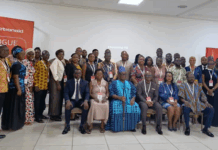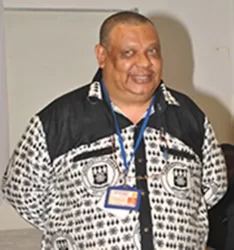
To effectively navigate the new reality of a post-COVID-19 landscape, governments, businesses, and individuals from various spheres must arm themselves with critical Complex Problem-Solving (CPS) skills.
This is according to Change and Transformation expert and Associate Consultant with Ishmael Yamson & Associates, Dr. Dela Evans, who argues that increased interconnectivity between multiple systems as a result of globalisation, coupled with changes occasioned by the pandemic have brought about a myriad of multifaceted problems which require a new approach to solving. Failure to do so, he warns, could have organisation-wide consequences.
Using Ghana as an example, he pointed out that rapid developments over the past two decades have been addressed using otherwise simplistic approaches, with the ripple effects of such an approach still being felt.
We have witnessed an expansion in major areas as a country from oil and gas to agriculture and education. We have also seen the middle class grow and young people achieve great feats. Consequently, complex problems began to arise, and knowing how to address them has become a key determinant of success,” he said in an interview with the B&FT.
For context, development institutions have given credence to this argument. The World Economic Forum (WEF), for instance, in its 2020 Future of Jobs report noted that as much as 50percent of all workers, globally, will need reskilling by 2025.
According to the report, Critical Thinking and Complex Problem Solving top the list of skills that employers believe will grow in prominence by 2025.
Speaking further, he said, “At all levels, we must ask ourselves if the approaches by institutions and development bodies are being effective, otherwise, if the solutions do not effectively and sustainably solve problems, they become expensive and have lasting consequences.”
Mr. Evans further stated that it has become necessary, especially for leaders of teams, to understand the intricate dynamics of the new world, through dedicated programmes tailored to address the growing problem.
“I believe that training executives in approaches to Complex Problem Solving will improve productivity in organisations and communities because one of the most important post-pandemic trends will be our speed in decision making.
If we define productivity as a function of efficiency and effectiveness, it follows that when we improve efficiency by giving Executives the skills and tools to tackle complex problems and increase their capacity for effective decision-making and problem-solving, productivity will improve,” he explained ahead of the inaugural workshop on CPS organised by Ishmael Yamson & Associates.
He also stated that whilst these can be introduced in bits and pieces, there is a growing need for more formalised platforms to convey relevant CPS skills. Offering additional insight into the two-day workshop he noted that CPS compels individuals and organisations to use next future state designs models to drive step-change in their performance.
“The required techniques such as issue trees, fishbone analysis helps to break down problems into sub-component parts for detailed analysis to develop relevant solutions options. Moreover, individuals learn how to prioritise potential improvement solutions based on ensuring that effort and benefit are clearly understood,” Mr. Evas added.
The two-day workshop, which is slated for March 24 and 25, in Accra has as its theme: Navigating Complex Problems in Organisations – The Required Techniques for Sustainable Solutions. It will see senior executives from across government and non-government organisations converge to partake in this new way of problem-solving.









